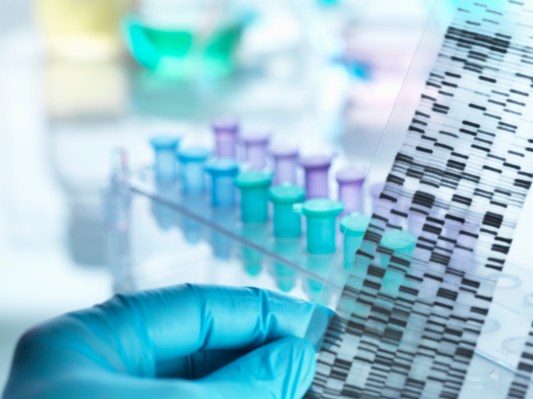Most at-home lab testing devices like Scanadu and Cor are still waiting for FDA approval, but simple lab testing can still be done in the confines of your own home and then shipped to a lab and that’s led to a handful of new startups offering services like STD or food allergy tests.
Everlywell, an Austin-based at-home lab testing startup (and a Disrupt Battlefield company), aims to make the testing it offers affordable and easily accessible to the masses. The company debuted two years ago and has grown quite a bit in a short amount of time. Founder Julia Cheek tells me Everlywell is now generating millions in sales and ships to 46 states in the U.S. The company recently announced it had pulled in another $2 million in seed funding, bringing the total to $5 million to help it grow its service offerings.
Everlywell so far offers eight different tests including food sensitivity, thyroid and metabolism testing or fertility testing to get a clear picture of how you are doing in those areas.
MyLabBox is another startup offering a detailed list of STD tests available for use in the home and at your convenience. The costs might seem high if not covered by insurance (and most at-home lab testing doesn’t seem to be) but you could still see about FSA/HSA reimbursements.
Though the debate wages on for how to cover America, these types of startups present a new range of abilities for the healthcare industry and could help lower the cost and ease of access for service workers and others who don’t work regular hours or don’t typically have insurance coverage.
The process is pretty simple for each startup — you order online and a kit arrives in the mail. Each test is different but some require a sample of blood or saliva. Just follow the instructions and then pop it back in the mail for analysis by a third-party lab.
The idea for these types of startups might be similar to something the embattled blood testing company Theranos once hoped to accomplish. Theranos held a lot of promise when it first launched, claiming it could test for hundreds of diseases on one drop of blood. However, you had to go into a Walgreen’s partner lab if you wanted to get results.
These newer lab startups offer the ability to test in privacy and instead use certified third-party facilities for accurate measurements. They may also be the preferred method for those who just want to see their results before determining whether they need to see a doctor as sitting face-to-face with someone who might tell them they have an STD can be a very real fear.
Both startups stand by the accuracy of their results and I’ve personally tried a food sensitivity test from Everlywell that I can say helped me determine certain foods that were causing stomach issues — including green peas, which is one I never would have thought of otherwise.
It’s not exactly full access to healthcare (that’s another debate I could get into but not today), but this new crop of health startups do offer a regulated option for those who can scrape up the money without paying insurance premiums to find out what might be going on inside their body — and with an easy and convenient solution to some of the fear they might have about going to the doctor’s office to get results.
